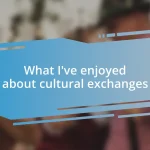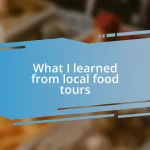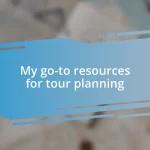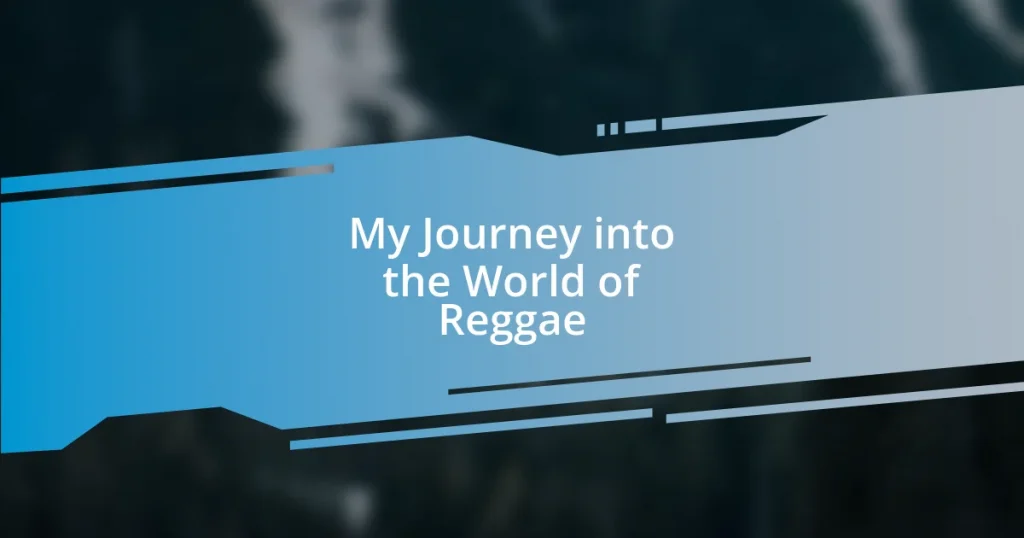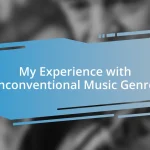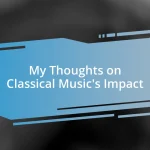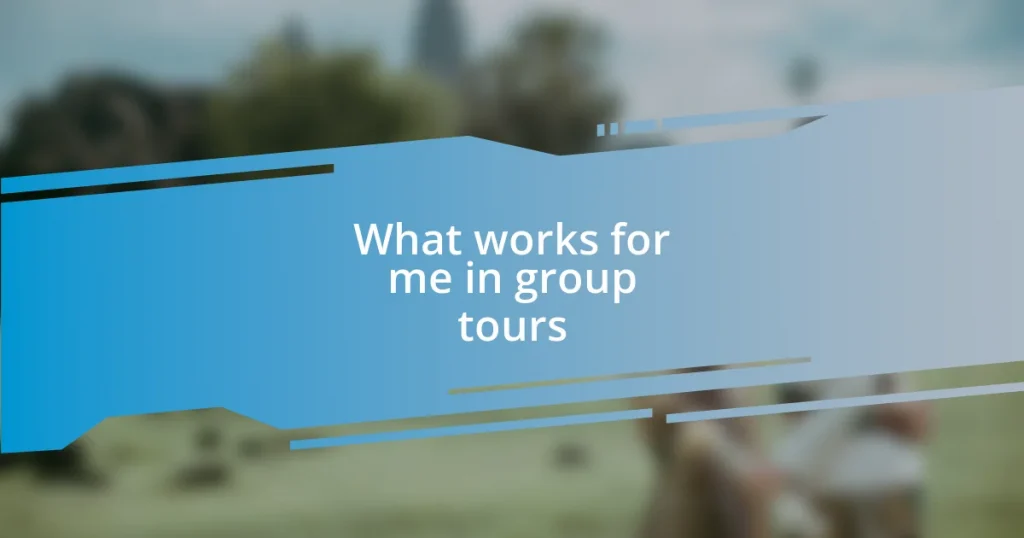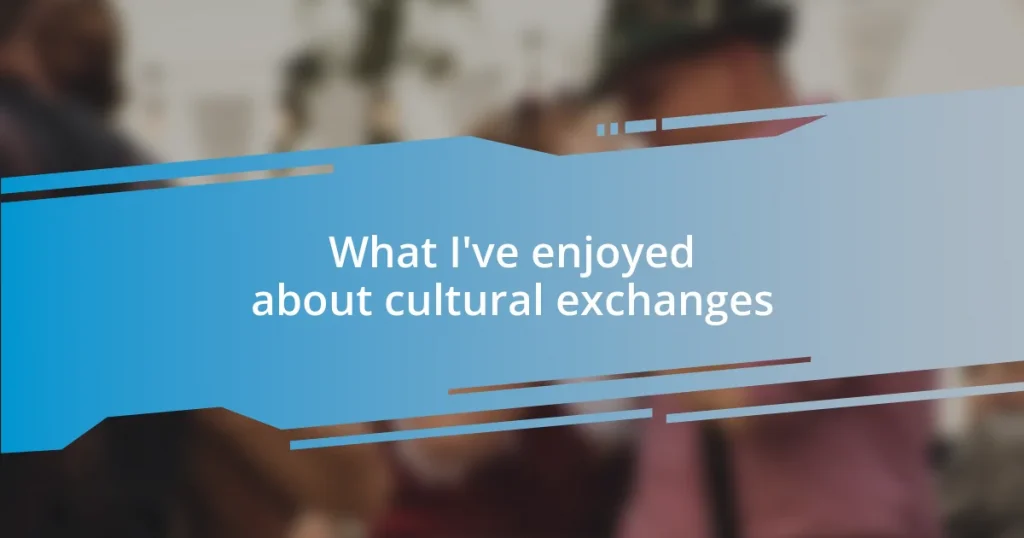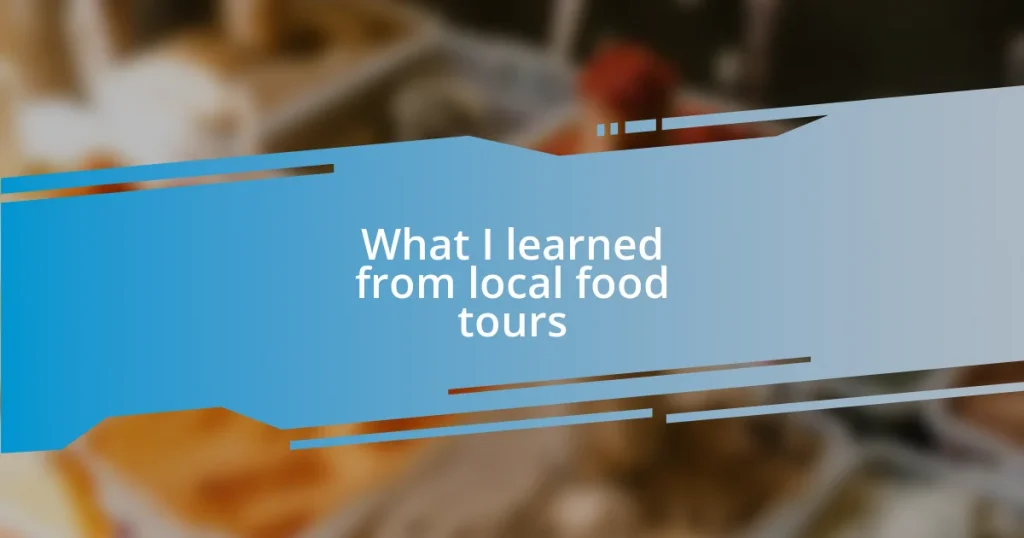Key takeaways:
- Reggae music serves as a powerful medium for social commentary, cultural expression, and community connection, deeply influenced by the Rastafarian movement and the social struggles in Jamaica.
- Experiencing reggae for the first time evoked strong emotional responses, highlighting its role in activism and self-empowerment through impactful songs like “Get Up, Stand Up.”
- Attending reggae festivals provided a transformative experience, emphasizing the genre’s ability to unite people through shared joy, creativity, and the universal language of music.
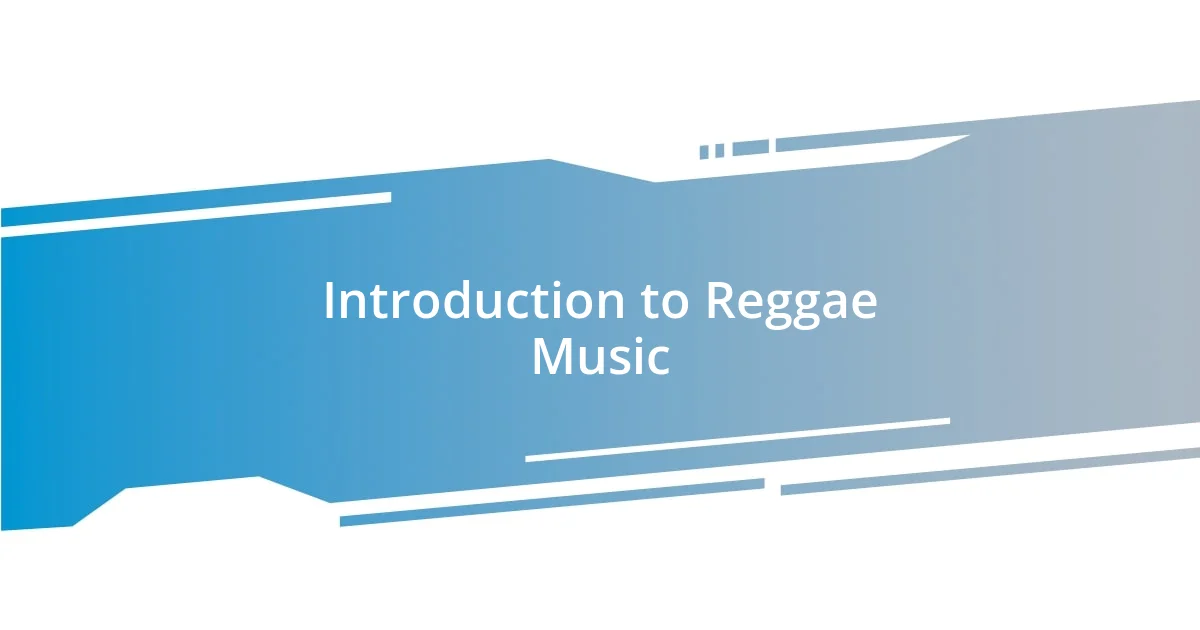
Introduction to Reggae Music
Reggae music, with its roots in Jamaica, emerged in the late 1960s and quickly became a powerful vehicle for social commentary and cultural expression. I remember the first time I truly immersed myself in a reggae beat; the rhythm felt infectious, making me want to move while simultaneously inviting reflection on life’s deeper meanings. How can a genre so rich in history also evoke such a feeling of unity?
Together with its pulsating bass lines and laid-back grooves, reggae carries powerful messages of love, resistance, and hope—often influenced by the Rastafarian movement. I recall listening to Bob Marley’s “One Love” during a road trip with friends; the song’s message of peace resonates with everyone, creating a sense of shared hope and camaraderie. Isn’t it amazing how a single song can bring people together and transcend language barriers?
The genre’s essence is about more than just music; it’s a lifestyle and a philosophy that encourages both awareness and celebration. My journey into reggae opened my eyes to not just the sound, but also the stories behind the lyrics—stories of struggle, resilience, and joy. Have you ever felt a song that spoke directly to your soul, making the world around you fade away? That’s reggae; it invites you to reflect on your own experiences while connecting with the broader human experience.
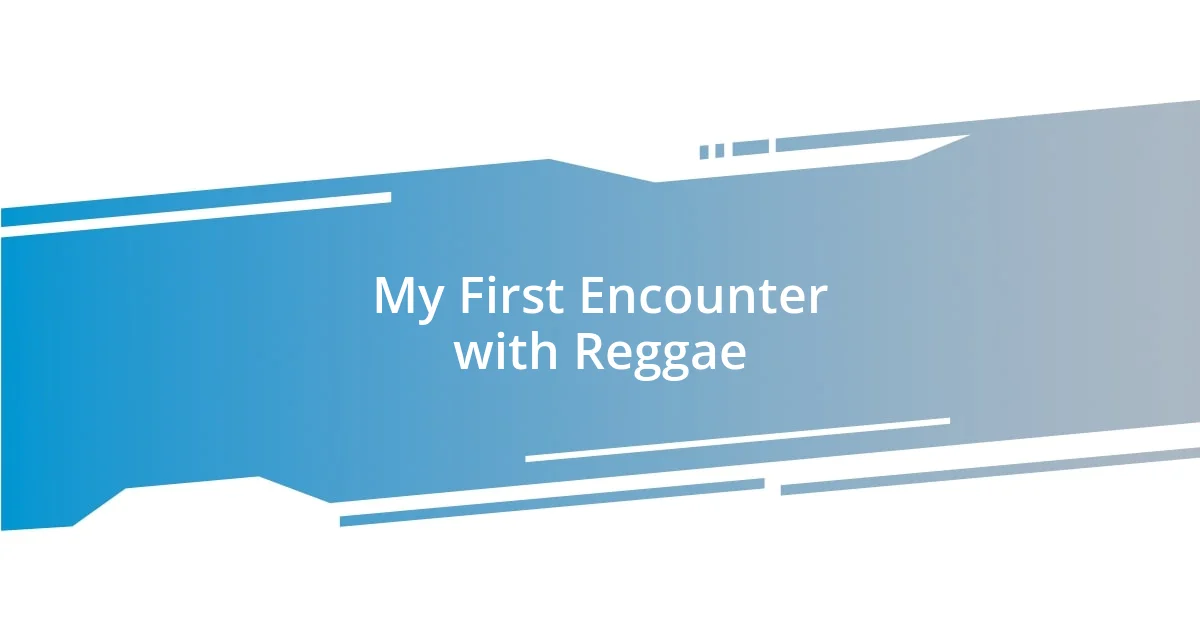
My First Encounter with Reggae
My first encounter with reggae was unexpected yet unforgettable. I was in my college dorm, a little overwhelmed by the demands of studies and life. One evening, a friend introduced me to the soothing sounds of Peter Tosh, and as I sat silently listening, the smooth strumming of his guitar and the powerful lyrics washed over me like a warm wave. It was as if I’d stumbled into a world where my worries temporarily melted away.
As I dug deeper, I found myself drawn to the messages within the music. One song that truly struck a chord was “Get Up, Stand Up.” The passionate call for activism and self-empowerment resonated with my own feelings of wanting to create change. Listening felt like joining a conversation about injustice and hope. Have you ever listened to a song that sparked a fire in you? That’s how reggae began to ignite my spirit and curiosity.
Reflecting on that transformative experience, I realized reggae is not just a genre; it’s a vibrant tapestry of emotion and storytelling. Each beat felt like a heartbeat of a community speaking out, sharing joy, and preserving history. It became clear that my journey into reggae was much more than musical exploration; it was an invitation to connect with a culture rich in tradition and resilience.
| Aspect | Reggae Experience |
|---|---|
| Location | College Dorm |
| Introduction | Friend Played Peter Tosh |
| Emotions Felt | Relief and Connection |
| Key Song | “Get Up, Stand Up” |
| Impact | Inspiration and Empowerment |
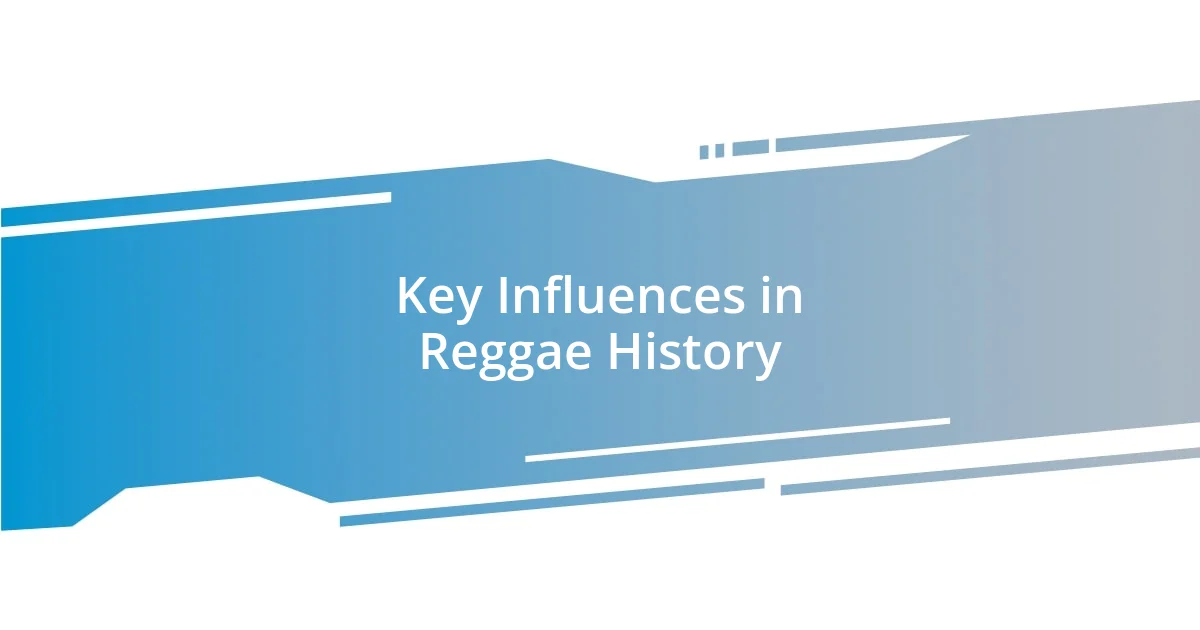
Key Influences in Reggae History
One cannot discuss reggae’s history without acknowledging the immense influence of early Jamaican music genres like ska and rocksteady. These sounds laid the foundational rhythms that would evolve into reggae, capturing the spirit of a vibrant culture. I vividly recall a night spent listening to a classic ska compilation with friends, realizing how it was the precursor to the deeper grooves of reggae. The energy was infectious, showcasing the progression of musical styles, and I couldn’t help but appreciate how every beat carried stories of community and celebration.
Key influences in reggae history include:
- Ska and Rocksteady: These predecessors shaped reggae’s rhythmic and melodic structure.
- Rastafarian Movement: This spiritual and cultural ideology profoundly influenced reggae themes of resistance and unity.
- American Jazz and Rhythm & Blues: The blending of these genres introduced new instrumentation and improvisational elements.
- Political Climate of Jamaica: The social struggles of the 1960s and 70s inspired many reggae artists to address topics like poverty and inequality in their songs.
Reggae is not just about melodious tunes; it’s steeped in a rich tapestry of cultural influences, each adding depth to its message. I often find myself reflecting on how the combined power of these elements resonates with the struggles and joys we all experience, forging a connection that transcends time and place.
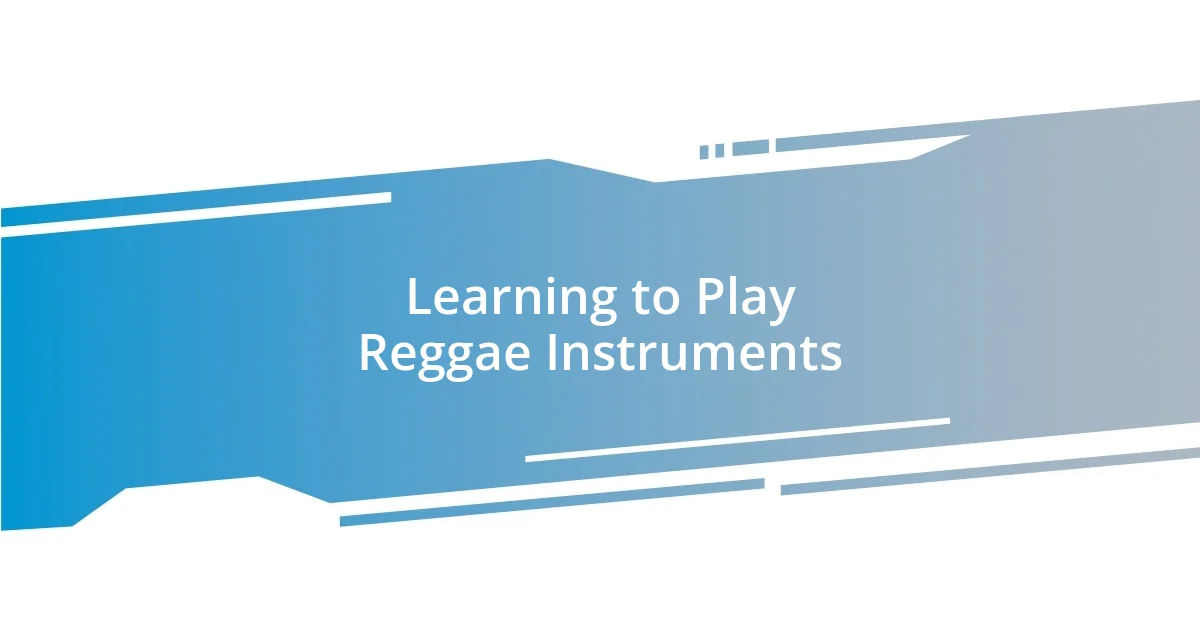
Learning to Play Reggae Instruments
Learning to play reggae instruments has been one of the most exciting parts of my musical journey. The first time I picked up a guitar, I was struck by how different its rhythm felt compared to other genres. The offbeat strumming, often associated with reggae, adds a unique flavor that invites listeners to sway along. I remember sitting alone in my room, trying to mimic the iconic scratch of a reggae guitar. Did I nail it? Not at first! But each misstep only deepened my appreciation for the skillful simplicity of the genre.
As I moved on to the bass, I discovered it’s the heartbeat of reggae music. One evening, while jamming with friends, we played “One Love,” and I could feel the energy shift as the bass line kicked in. It’s incredible how the instrument really pulls everything together, creating a solid groove that makes you want to dance. I found myself asking, “Why does this feel so magical?” The bass carries not just the melody but the very emotion of the piece, connecting everyone in a shared experience.
Experimenting with drums was a game-changer. I often felt out of my comfort zone, but learning the distinctive one drop rhythm was both challenging and rewarding. I can remember the thrill of finally executing that laid-back beat with precision during a small gathering. It felt like a rite of passage. The drums aren’t just for keeping time; they serve as a call to unity, echoing the spirit of community that reggae embodies. Each practice session became a conversation with the music, revealing more about the culture and its depths as I strived to master the patterns.
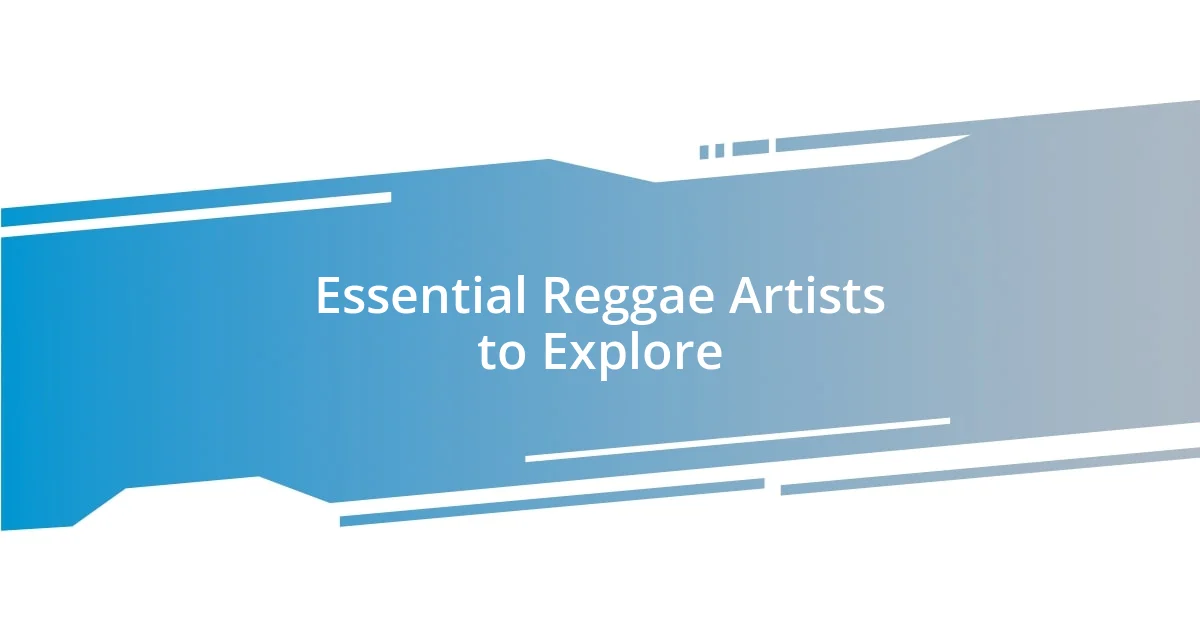
Essential Reggae Artists to Explore
Exploring the world of reggae brings us to some truly iconic artists whose contributions have shaped the genre. Bob Marley is undoubtedly the cornerstone of reggae, with his ability to blend spiritual messages and social commentary into unforgettable melodies. I remember the first time I heard “Redemption Song” – the raw emotion in his voice struck a chord deep within me, making me reflect on the power of resilience against adversity. How does one man’s music carry such universal themes? Marley’s work resonates and invites listeners to dream of a better world.
Then there’s Peter Tosh, whose fierce advocacy for rights and freedom is as compelling as his music. Listening to “Equal Rights” for the first time opened my eyes to injustices that still exist today. I was amazed by how a song could encapsulate anger and hope simultaneously. Didn’t you feel that rush of empowerment? Tosh’s raw authenticity reminds us that reggae is not just entertainment; it is a powerful tool for change.
Finally, I can’t overlook Jimmy Cliff, whose infectious energy and positive vibes encapsulated the spirit of reggae. When I stumbled upon “The Harder They Come,” the vibrant rhythms and Cliff’s uplifting message painted a vivid picture of the struggles faced in Jamaica. It was an awakening moment for me, learning that reggae isn’t just about the beat; it’s about connection and authenticity. What draws you in when you hear that familiar rhythm? For me, it’s the story that resonates within every song, weaving a rich narrative that feels like a warm embrace, inviting us into the heart of reggae culture.
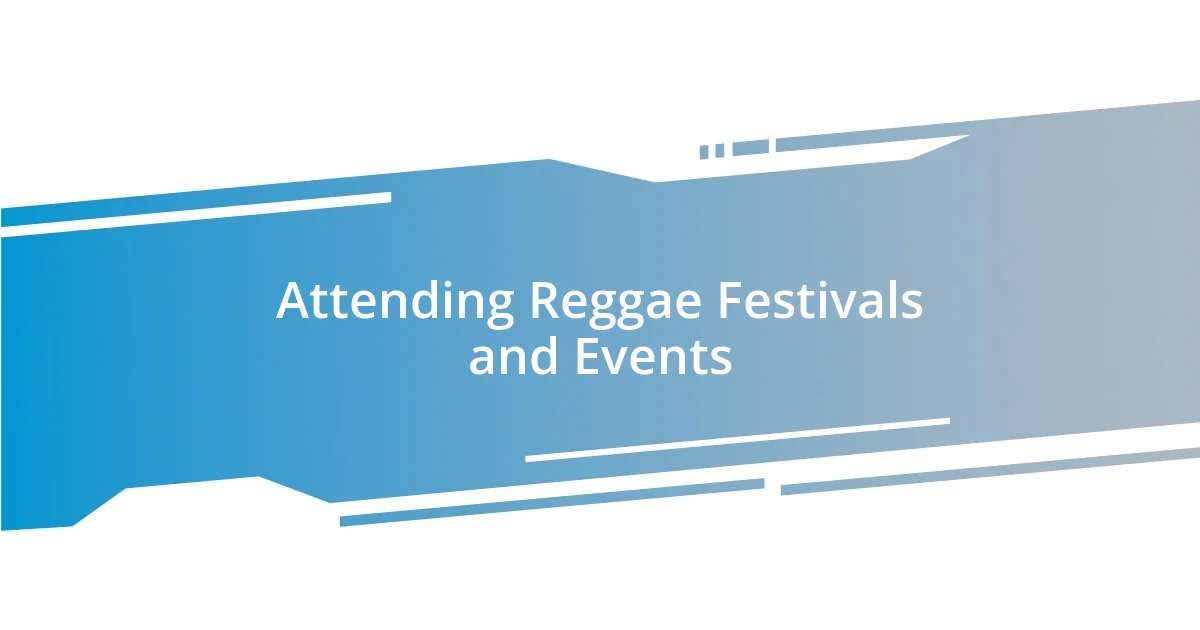
Attending Reggae Festivals and Events
Attending reggae festivals has been a transformative experience for me, truly immersing myself in the culture and vibe of the music. I vividly remember my first festival; the air was filled with laughter, the scent of Caribbean cuisine, and the pulsing rhythm that made it impossible to stay still. As I joined a group of strangers swaying joyfully to the beat, I realized that these events are more than just musical gatherings; they’re celebrations of unity and love. How often do we get to connect with like-minded souls purely through the power of music?
At one particular festival, I found myself surrounded by a sea of colorful outfits and an infectious energy that just swept me off my feet. During a performance by a local band, I could see the passion radiating from each musician, and it hit me then: reggae is a language that transcends barriers. I looked around and noticed everyone—from the youngest child to the oldest grandparent—lost in their own groove, sharing in the collective joy. Doesn’t it make you wonder how music has this unique ability to create bonds between people who may never otherwise meet?
The festival vibe hits a high point during the late-night jam sessions, where musicians and fans meld together in spontaneous moments of creativity. I recall one instance where I picked up a friend’s guitar and started strumming along, encouraged by the kind smiles of strangers who cheered me on. That sense of belonging, of contributing to something larger than myself, was exhilarating. It reinforced my belief that reggae isn’t just about the notes and rhythms; it’s about the stories we weave together in those fleeting moments of connection. Isn’t that what makes music so powerful?


